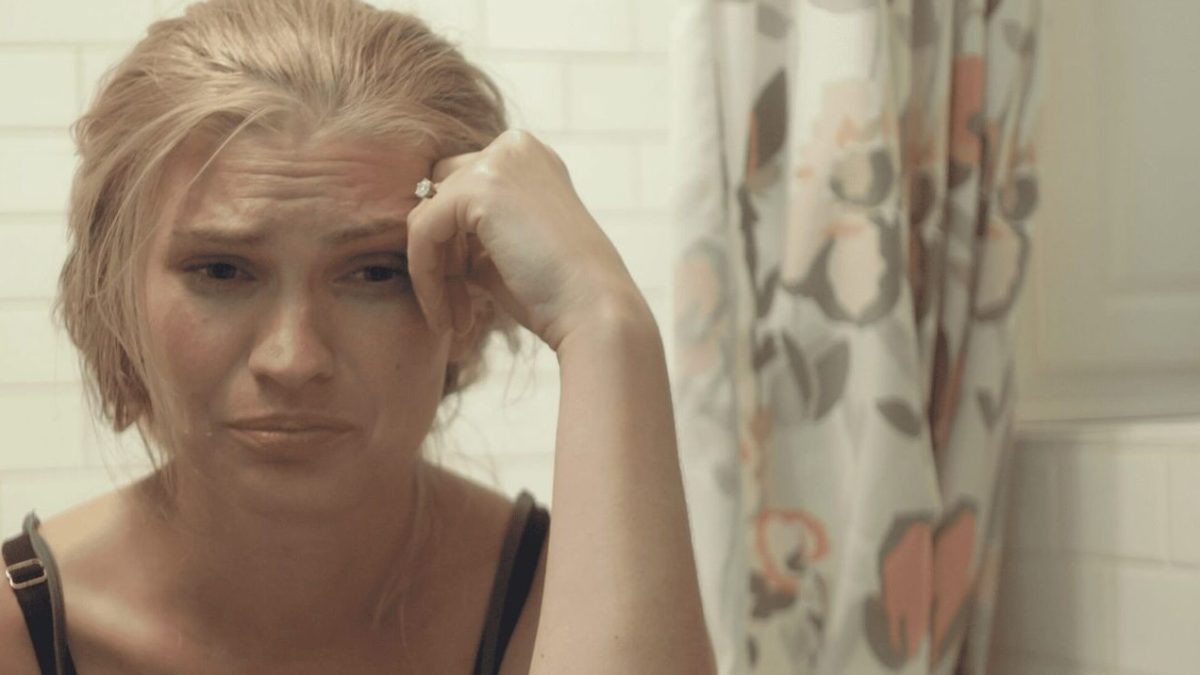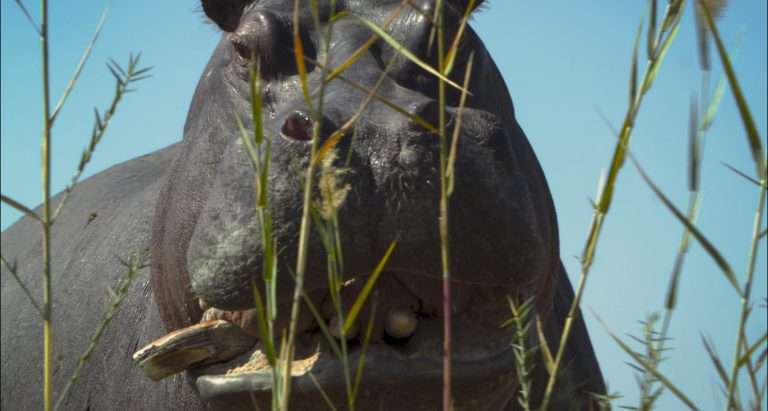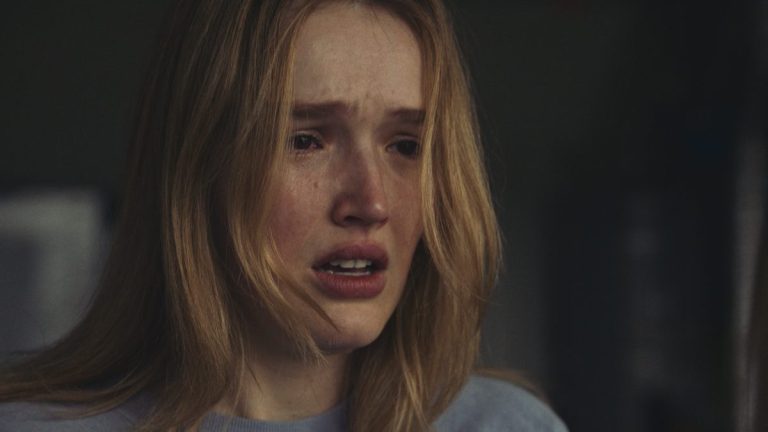Domestic abuse survivor Nicole Beverly has a painful, heartbreaking story to share in her memoir “Finding Nicole: A True Story of Love, Loss, Betrayal, Fear and Hope.” Beverly’s story highlights a spine-chilling statistic: 1 in 4 women (24.3%) in the US have been the victim of severe physical/sexual violence by an intimate partner in their lifetime, where domestic abuse alone affects 12 million people every year. Entrenched misogyny and patriarchal mindsets tend to gloss over the severity of this grave issue, as crimes against women are not taken seriously even when the signs of abuse are as clear as day.
Harley Wallen’s “Finding Nicole” tells Beverly’s story with sincere intent, as it does not skirt around the discomfort embedded into a narrative that spotlights intimate partner violence and its traumatic fallout. The film opens with Nicole (Kaiti Wallen) practicing at a gun range, presumably gathering her strength to fight the odds stacked against her. As we venture into her past, we see the beginnings of a potentially beautiful relationship — football player Warren (Marcus Woods) uses his charm to woo her, and the two enter a steady relationship soon after.
Even at this point, Warren exhibits red flags that aren’t overt in nature, as he automatically assumes Nicole’s consent to a date even before she has a chance to respond. While Nicole chalks this up to nervous excitement, this micro-behavior alone reveals a lot about the kind of person Warren would turn out to be.
Sure enough, we see this toxicity rear its ugly head a year later, when Nicole is seen talking to her friend during a backyard barbecue party, with Warren looking on with jealous rage. Even after Nicole dispels his doubts later on, Warren lashes out violently, exposing his own narrow and insecure worldview, which he camouflages with inauthentic declarations of passionate love.
Things only go downhill from this point onward after Nicole unexpectedly gets pregnant, as her two children are now exposed to Warren’s increasingly violent and unhinged behavior. Nicole does her best to shield them from harm; if anything, she seems overly critical of herself as a mother, even though none of this is her fault. This sentiment of misplaced guilt isn’t uncommon among victims of abuse, as a mix of compounded trauma, debilitating stress, and societal stigma can contribute to these complicated feelings. Nonetheless, Nicole pushes forward, arming herself in more ways than one to stand up against Warren’s criminal (and inhumane) transgressions.

The problem with “Finding Nicole” obviously doesn’t lie in the dramatization of a harrowing real-life story, but rather how it is conveyed through the cinematic medium. Wallen’s well-intentioned perspective is woven throughout, but this deep-seated care and empathy towards Beverly’s story doesn’t translate into technical prowess or effective storytelling.
Granted, this is a film that doesn’t require exaggerated embellishment for it to be told or heard, but it does fail to meet baseline expectations of directorial merit or competence. For instance, the back-and-forth between the flashback and court procedural is a solid structure on paper, but Wallen executes this rather shoddily, sucking out build-up and tension when the story needs it the most.
The performances in “Finding Nicole” are also jarringly uneven, as the leads alternate between believable line-reads and borderline unwatchable moments of dramatic tension. Most of the other performances lean on less subtle cues, hence stretching the limits of suspension of disbelief, or cheapening moments that might’ve otherwise been powerful. The film’s limited budget is also a noticeable obstacle, apparent in the way the events unfold and how contained this lackluster quasi-fictional world feels.
Despite these persistent flaws (which are quite difficult to overlook), “Finding Nicole” is an indispensable story about violent misogyny and rape culture, along with how society protects (and encourages) these noxious attitudes at the cost of women’s lives. Toxic men are always protected by other men in their proximity, and this becomes a systemic obstacle for women who are subject to scrutiny, ridicule, and shame the moment they speak up. This gross enabling of violent misogyny must be eradicated from the root, and Wallen’s film is surely a step towards this urgent societal goal.



![John Wick: Chapter 3 – Parabellum [2019] Amazon Review : Brutal and Beautiful](https://79468c92.delivery.rocketcdn.me/wp-content/uploads/2019/05/john-wick-review-high-on-films-768x432.jpg)

![Girl Picture [2022]: ‘Sundance’ Review – A radical albeit slight tale about sexuality, identity & growing up](https://79468c92.delivery.rocketcdn.me/wp-content/uploads/2022/01/Girl-Picture-1-768x432.jpg)


